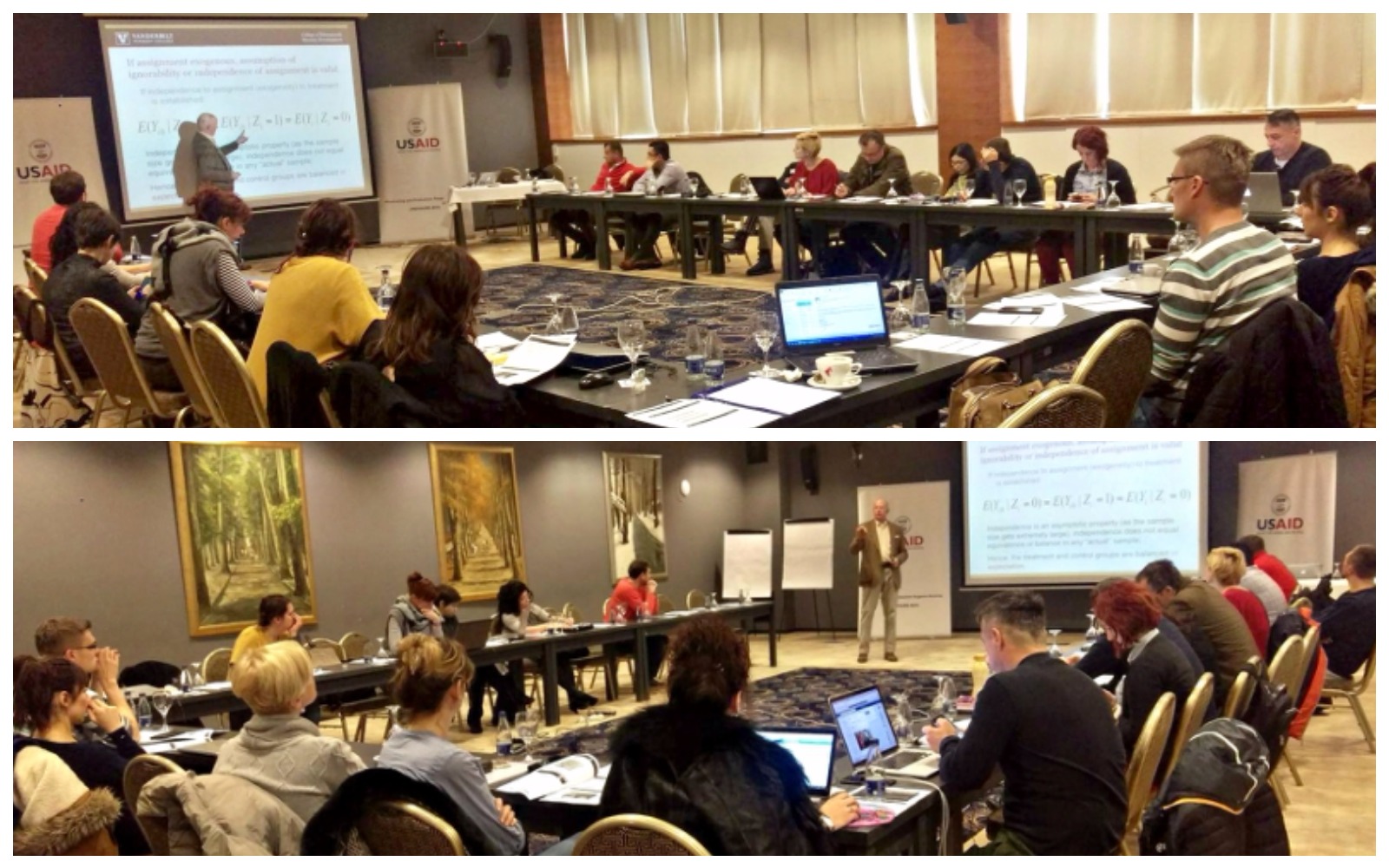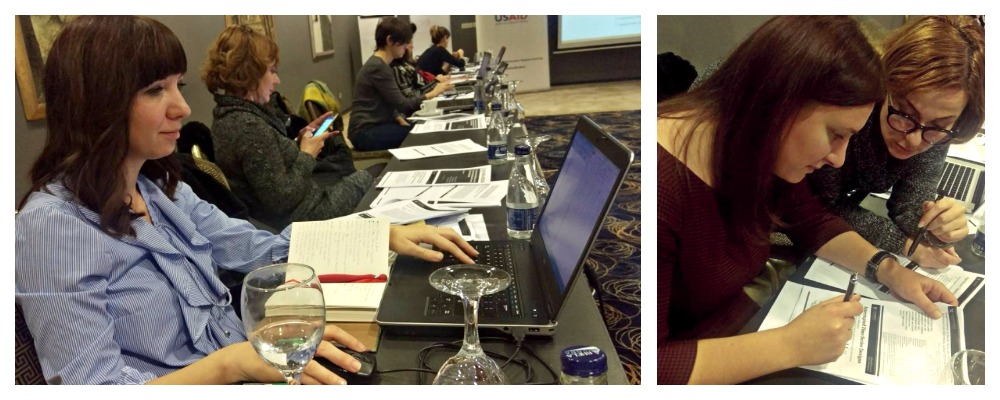MONITORING AND EVALUATION SUPPORT ACTIVITY (MEASURE)

MONITORING AND EVALUATION SUPPORT ACTIVITY (MEASURE)
USING NON-EXPERIMENTAL DESIGNS FOR IMPACT EVALUATION
|
Instructor: Gary T. Henry (The Evaluators Institute (TEI))
Time: 6/12/2017 – 7/12/2017
Description: During this two-day course the lecturer led participating Fellows through following topics essential for using non-experimental designs for impact evaluation: 1) Potential Outcomes Theory; 2) Basic Approaches to Impact Evaluation; 3) Matching Designs with emphasis on Propensity Score Matching (PSM); 4) Regression Discontinuity; 5) Instrumental Variables; and 6) Comparing Designs using Longitudinal Data. During the course, the participants learnt to explain potential outcomes theory, a theory of causal inference (counterfactual evidence), the ideal experiment and the need to simultaneously consider internal and external validity. They were also thought to design a non-experimental study using matching, longitudinal, or random assignment designs; and to explain requirements as well as strengths and weaknesses of the non-experimental designs. Special attention was paid to the Random Assignment Study – why is it needed for impact evaluation and why it is not doable for all impact evaluations. In addition, the instructor emphasized the importance and benefits of doing a PSM – steps for its implementation, calculation of the propensity score and types of PSM designs. |
|
|






